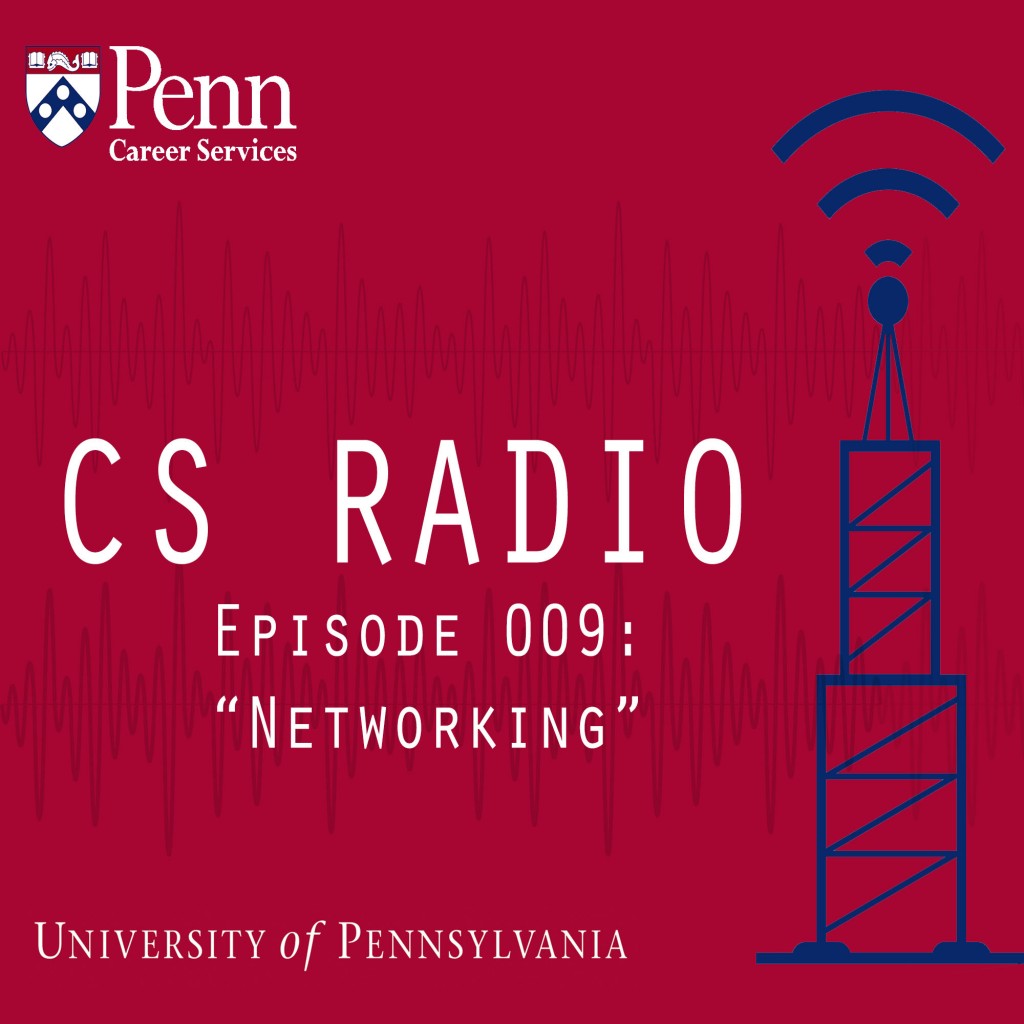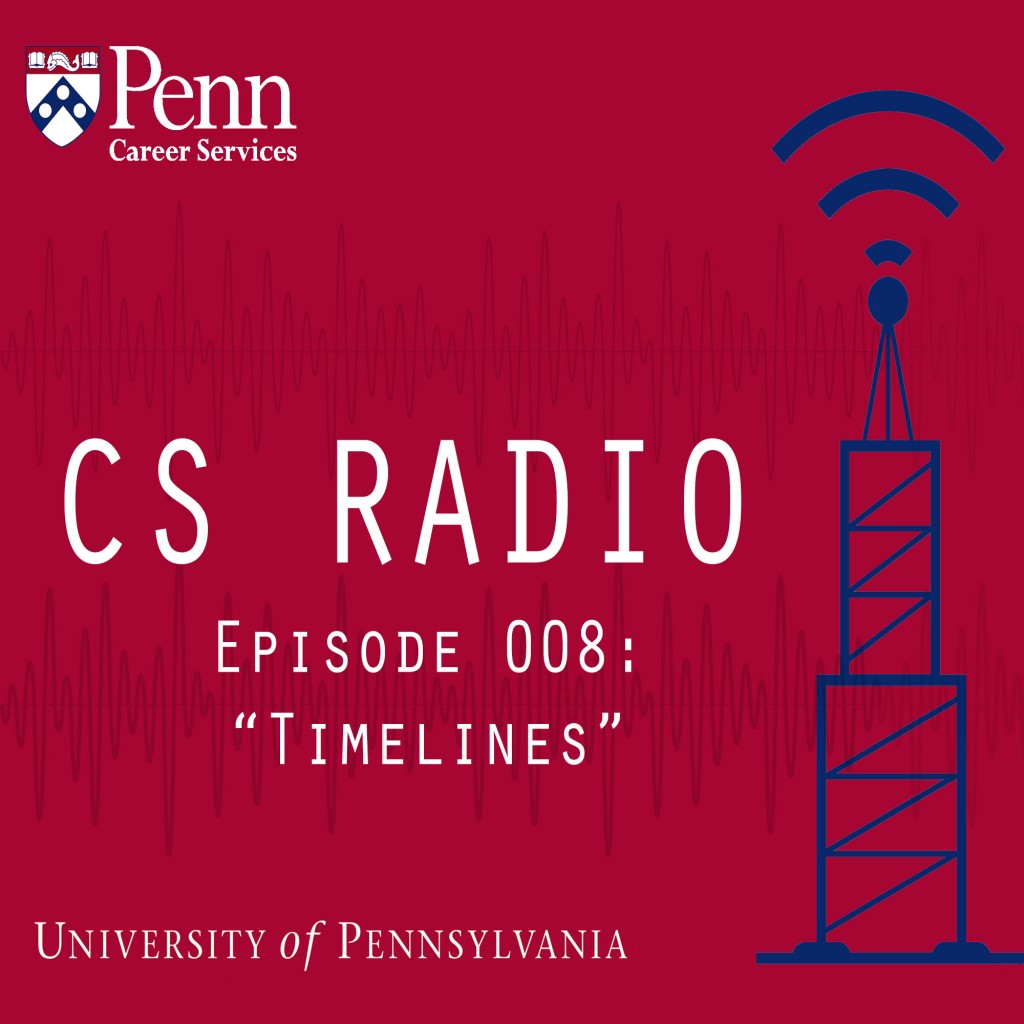by Monika Haebich, COL ’15
There is a lot that an undergraduate education at the University of Pennsylvania will teach you. Want to talk about Pataphysics or Premodern female authors, the nerd in me would be happy to talk. But while you’ll find the classroom lessons at Penn invaluable, it’s the lessons that extend past the chalkboard that you may find the most helpful in your job search. As I exit my undergrad experience at Penn and enter the perils of the “real world,” here are the lessons I’ve come to value the most:
1. There is no script.
Regardless of the career paths that others may choose, you define your own success. Reflect on and recognize your strengths, and use them to your advantage. Moving to Atlanta to pursue a career at a startup may not have been the typical Penn trajectory, but at a university where every student is truly extraordinary, it would be reductive to define a single “Penn path” as the one for every student. Write your own script, and don’t be ashamed of the path you choose.
2. Don’t expect anything to be easy.
There will be times when it feels as if nothing is certain, but if there is one thing that is sure, it’s that your senior year, you will be faced with uncertainty. Not everyone will have a job or school lined up by the beginning of senior year, the beginning of the spring semester, or even by graduation, but really think about what you want to do post-graduation, and be confident in your strides towards that. It’s okay to feel lost; it’s okay to be scared, but know that everything will be okay. Nothing remarkable will ever happen within the confines of your own comfort zone, so push yourself, and know that you are not alone.
3. Ask for help; it’s easier than doing it alone.
Always use your resources, and ask for guidance, advice, feedback, and help when you need it. While there may be times when you feel behind, remember that you are all going through this together. I made my first mistake when I, like many others, attempted to go through the job search and OCR alone. Without consulting Career Services, my friends, my family, or my professors first, I became overwhelmed with possible career trajectories and devoid of a sound understanding of what I really wanted to do. Reach out to your friends, your family, your loved ones, your professors, and listen. Requesting the guidance or assistance of others is not a sign of weakness; it’s an opportunity to learn and grow. Seek constructive criticism, lift each other up, and be of and ask for help when you can. Really, not everything is a competition.
4. Don’t take “no” for an answer.
In whatever you choose to do, there will be people who tell you “no.” Don’t let insecurity or a fear of confrontation prevent you from getting what you deserve. Proceed with confidence, and the world is yours.
5. Surround yourself with the people who motivate and inspire you.
Inspire yourself everyday. Whether it’s with the people on your team, in your sorority, or in your office, surround yourself with those who will encourage, nurture, and inspire your growth. Faced with different job offers, I knew I would end up at my current startup, rented., after realizing that I had surely found a supportive and incredibly inspiring team. Even before accepting the offer, I had more guidance from the team than I could have expected. Taking the time to address my concerns, speaking with me on multiple occasions, and referring me to all the resources I could possibly want, rented.’s CEO,COO, and Vice President of Marketing all proved early on that I had found my new team.
Look for the workplace that will transform you for the better, and never underestimate the importance of a supportive team.
6. You’re here for a reason.
Sure, a title and degree will afford you many opportunities, but it’s your drive and passions and desire to achieve that brought you here in the first place. Remind yourself of the bigger picture, and remember all of the things that brought you to where you are now.
7. There’s always more to learn.
As inspiring as a Penn education is, it is also humbling. Each class is a reminder of just how much of the world is left for you to explore, and that learning certainly shouldn’t stop after college. Even in my first, short five months here at rented., the lessons I’ve learned about new industries, my work, and myself have proved to be invaluable.
Learn from every obstacle, challenge yourself to broaden your understanding of the world, and know that Penn will always be home.
Monika graduated from Penn in 2015 with a B.A. in English concentrating on Literary Theory and Cultural Studies and minors in Consumer Psychology and Fine Arts. Originally from New York, Monika now lives in Atlanta and enjoys photography, polo, and traveling in her free time. She is a Marketing and Sales Associate at Rented.com. You can read about a typical day in her life at our @PennCareerDay Storify page.




